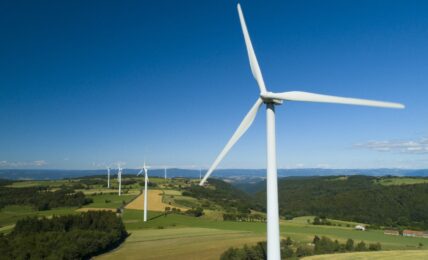Energy giant Chevron announced today plans to significantly ramp its investments its low carbon businesses to over $10 billion by 2028, more than 3x its prior guidance of $3 billion. Investments will target key areas including carbon capture and offsets, hydrogen, renewable fuels, and greenhouse gas (GHG) reduction projects.
The company will outline the details of its plan at today’s Energy Transition Spotlight presentation to investors. According to the presentation materials, Chevron expects its investments to enable 30 million tonnes of annual CO2 equivalent emission reductions by 2028, including a 35% reduction in upstream carbon intensity, with further abatement projects expected to drive additional reductions after that date.
Chevron’s 2030 targets for its new energy businesses include achieving renewable natural gas production of 40,000 MMBtu per day, reaching renewable fuels production capacity of 100,000 barrels per day to meet growing customer demand for renewable diesel and sustainable aviation fuel, and growing hydrogen production to 150,000 tonnes per year to supply industrial, power and heavy duty transport customers. Additionally, the company aims to increase carbon capture and offsets to 25 million tonnes per year.
Jeff Gustavson, President of Chevron New Energies, said:
“Renewable fuels, hydrogen and carbon capture target customers such as airlines, transport companies and industrial producers. These sectors of the economy are not easily electrified, and customers are seeking lower carbon fuels and other solutions to reduce carbon emissions.”
Chevron’s announcement comes as major oil and gas companies are facing increasing investor and regulatory pressure to act on climate change, and prepare for the energy transition. Climate-focused activist investors recently won board seats at energy giant Exxon, and a Dutch court issued a ruling against Shell, requiring the company to cut emissions by 45% by 2030. At Chevron’s AGM in May, a majority of shareholders voted for a resolution mandating the company to reduce Scope 3 emissions. Chevron plans to publish a response to the shareholder vote in its Climate Change Resilience Report next month.
Michael Wirth, Chevron’s Chairman and CEO, said:
“It’s a straightforward strategy: Be a leader in efficient and lower-carbon production of traditional energy, in high demand today and for years to come, while growing the lower-carbon businesses that will be a bigger part of the future.
“A strategy that’s both profitable and enduring in the short and long term for our shareholders and all stakeholders.”
The post Chevron Commits $10 Billion for Investments in Energy Transition Strategy appeared first on ESG Today.


